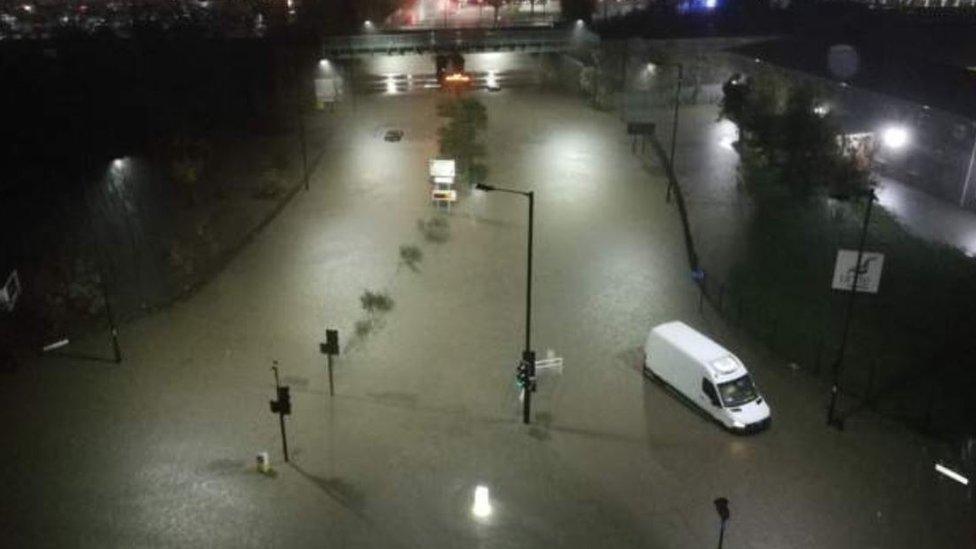England flooding: River warnings and rail delays continue
- Published
Drone footage filmed from Matlock shows the extent of the floodwater
Severe flood warnings and rail cancellations remain in areas of England flooded after a month's worth of rain fell in a single day.
Derbyshire and South Yorkshire have been worst hit by the floods, which claimed the life of one woman swept away in a river near Matlock.
Seven severe flood warnings - deemed a threat to life - remain on the River Don in South Yorkshire.
Meanwhile, trains are not running in parts of the East Midlands.
Services are cancelled on the Matlock-Derby-Nottingham route and diversions are in place between Derby and Chesterfield, adding about 30 minutes to journeys.
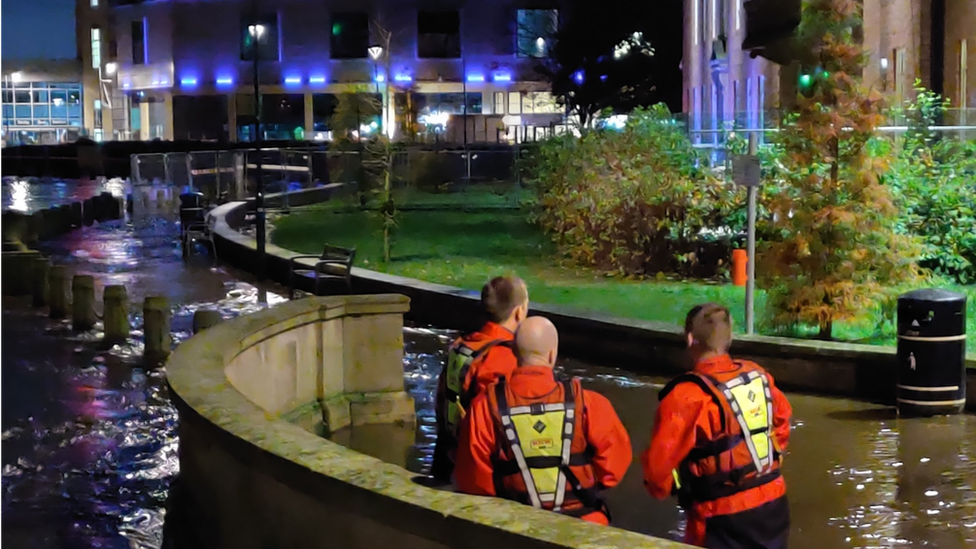
The River Derwent burst its banks in Derby city centre
South Yorkshire Fire and Rescue said it had declared a major incident on Friday night and firefighters had rescued more than 40 people from the Fishlake area, near Doncaster.
Deputy Chief Fire Officer Alex Johnson advised people to "keep themselves safe, help each other and don't drive into flood water".
Water sports enthusiast and teacher Mark Ibbotson, from Doncaster, said he, along with his 13-year-old son Logan, had rescued more than 30 people - including two babies - from a number of streets in Bentley where homes have been hit by flooding.
"They keep shouting 'come and help me' and shouting from the windows, asking for help," said Mr Ibbotson.
Logan said: "Just to see them all suffering like this, it's been awful."
Mr Ibbotson continued: "There was an old couple... when we opened the door, the water was centimetres from pouring in.
"I lifted them in to the boat and later on the water had risen, and I just dread to think what they're going back to."
The teacher said he took his red inflatable boat to help with the rescue efforts in Bentley after his experiences of flooding in 2007.
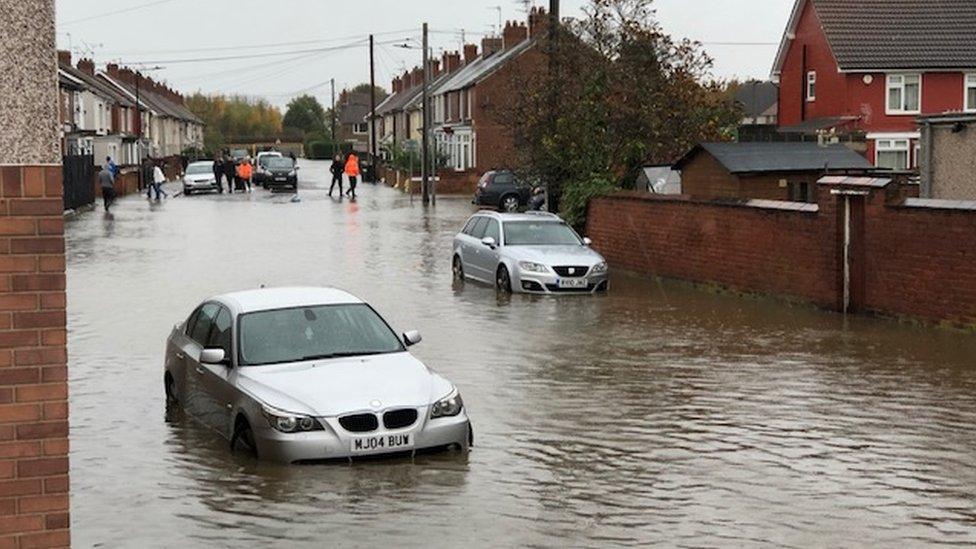
More than 40 people were rescued by firefighters in the Bentley area of Doncaster
Chris Hart, from Thorne, near Doncaster, rescued his grandparents from Conyers Road in Bentley and said the flood water was "pretty deep", describing the scene as "chaos".
In Derby city centre, a number of properties were evacuated on Friday night after the River Derwent burst its banks and officials said a city-wide evacuation had been considered.
Matt Lee, from Derbyshire Fire and Rescue Service, said: "All the partner agencies were in contact and had regular meetings to discuss the threat to Derby city that was a very real threat.
"We were very concerned we might have a city centre evacuation.
"Fortunately it [the River Derwent] didn't burst its banks to the extent we thought it would and disaster was averted."
The A52 - the main road route into Derby - remains closed westbound between the city and the M1 along with a handful of smaller roads in the county.
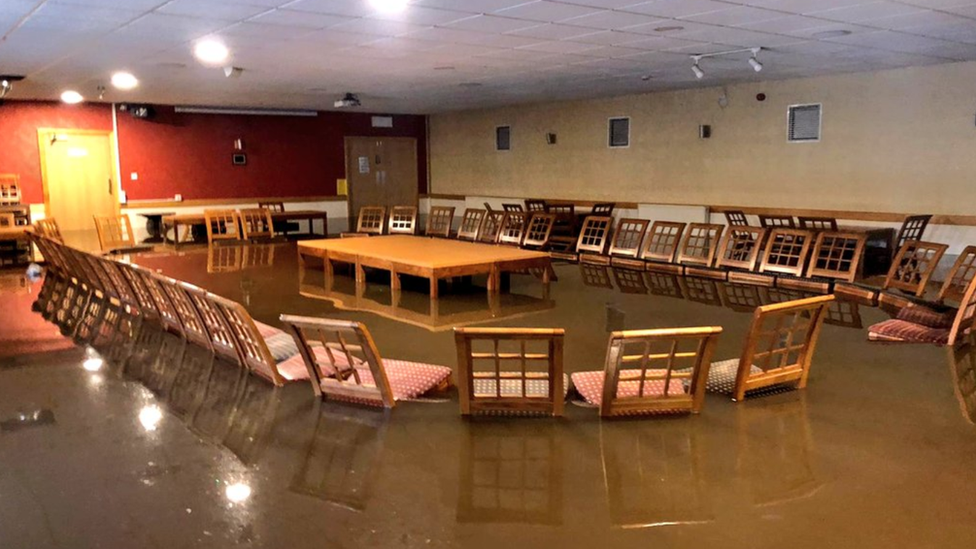
Volunteers are helping with the clear-up at Belper Town Football Club
A clear-up is under way at Belper Town Football Club after it was flooded on Friday afternoon.
Director of football Andy Carter said he was confident things would be back to normal by the club's next home game in a week.
In Worksop, Nottinghamshire, water levels are receding after 200 homes and businesses were evacuated on Thursday evening.
Bassetlaw District Council said it had closed its emergency rest centre as everyone who had left their homes were with friends and relatives.
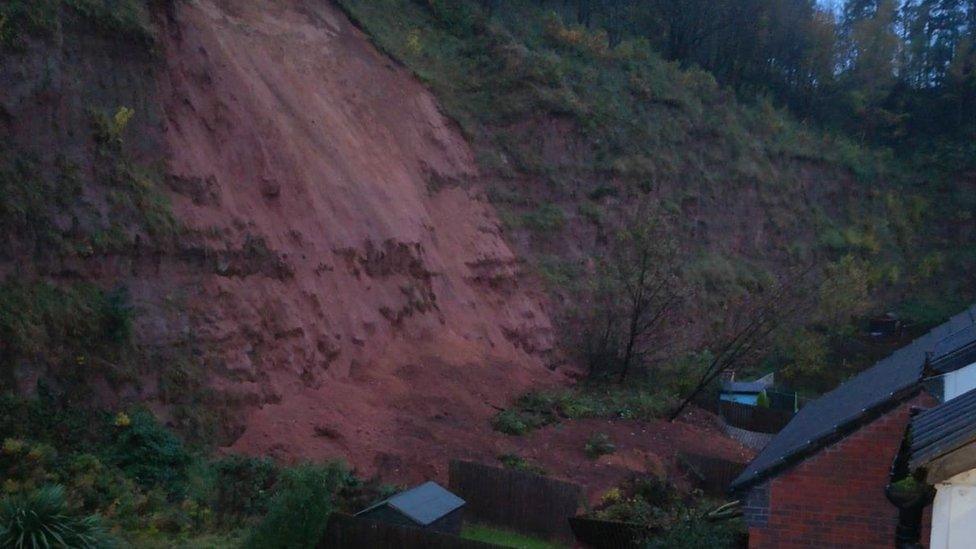
An evacuation was ordered when part of a cliff gave way on Thursday
Residents from 12 homes in Mansfield, Nottinghamshire, are still unable to return home after a mudslide on Thursday led to 35 properties being evacuated.
Emergency work to secure a cliff at the former Berry Hill Quarry site is due to start later.
The River Don, which flows through Sheffield, Rotherham and Doncaster, hit its highest recorded level at just over 6.3m (21ft), higher than it was in 2007 when it also flooded.
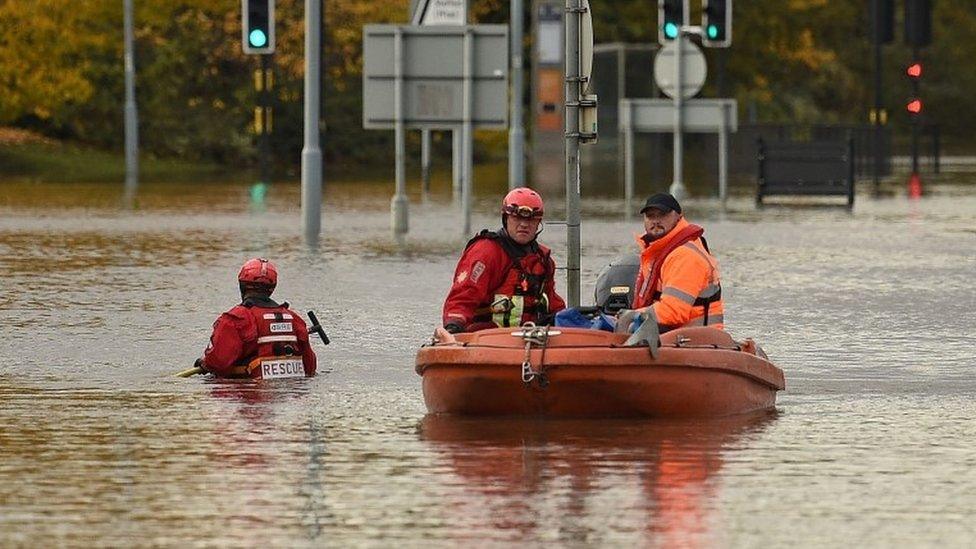
Rescuers used boats to reach people trapped in Rotherham
People continued to be rescued from flood-hit towns and cities on Friday.
One man told the BBC he carried children from his gym in Rotherham, wading through water that had submerged the streets outside.
"The whole of the gym was completely flooded in water," said Neil Wilson.
"We had to wade through water to get children to the cars so they could get home with their parents.
"The way the car park is it's a bit deeper, so when we were carrying kids to the car it was coming up above our knees."
But there was better news overnight into Saturday as the torrential downpours abated.
Met Office meteorologist Steven Keates said: "I think the most important thing is that the areas which have been affected by floods should avoid rain and get some respite."
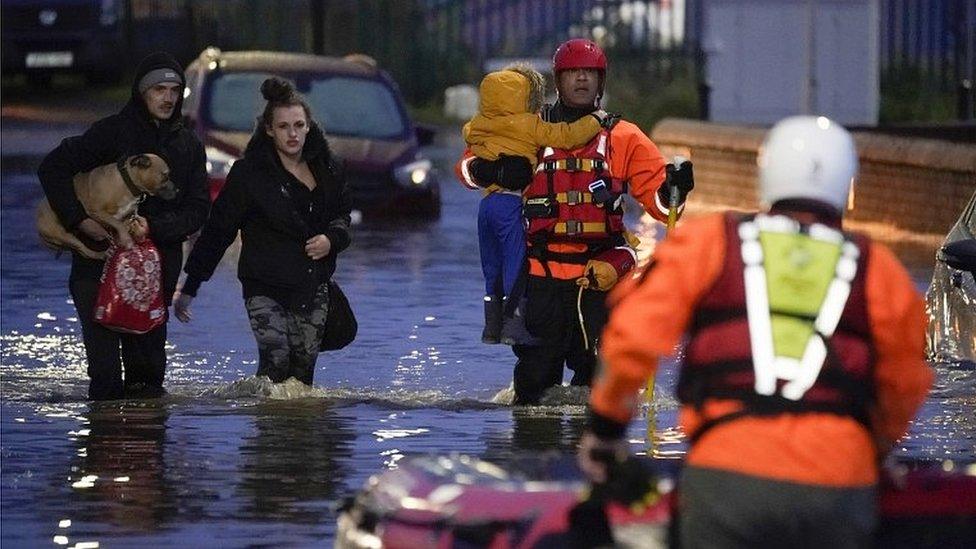
Children and pets were carried to safety as people evacuated their homes in Doncaster
Matlock clothes shop owner Kirsty Gilbert said flooding had ruined a significant amount of her stock.
"We've lost everything that was on the floor - shoes and handbags," she said.
"Nearly every business in Matlock has been affected in some way."
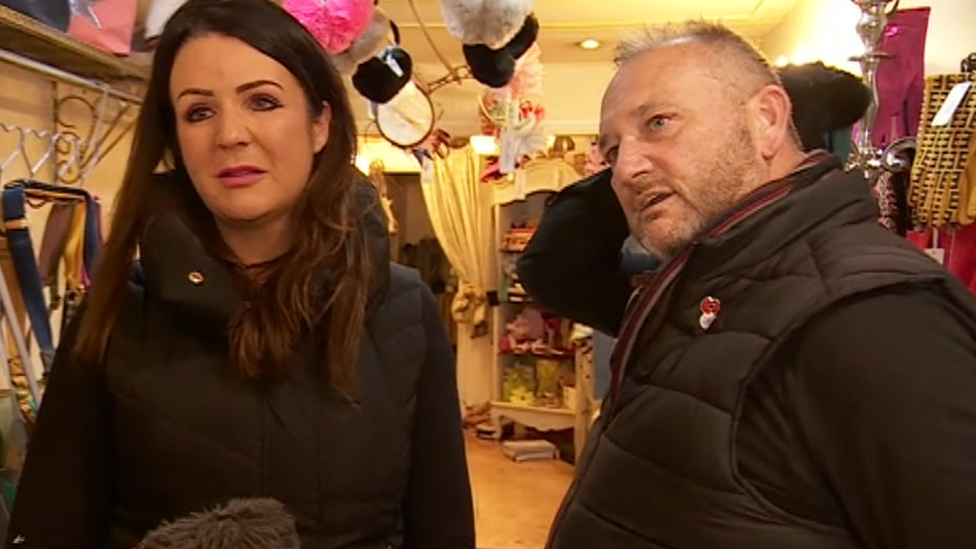
Kirsty Gilbert said she arrived at her shop to find shoes floating around
On Friday, the floods claimed the life of a woman who was swept into the River Derwent at Rowsley in Derbyshire.
Her body was found about two miles away in Darley Dale.
She was named earlier as Derbyshire's former High Sherriff Annie Hall.


Every time there's serious flooding, questions are asked about why it was allowed to happen.
One simple answer is governments of all parties have been accused of not spending enough on protection.
You can build walls along river banks and many places have been guarded this way but such 'hard defences' are expensive and obtrusive.
An alternative is to employ what are known as soft defences. These include encouraging farmers to manage their land in ways that let fields hold back floodwater.
Driveways and car parks can be surfaced with materials that allow it to reach the soil underneath.
Another option is to make homes more resilient - fitting exterior doors with waterproof plastic panels, sealing the ground floor and raising fuse boxes.
In some ways the country has become better prepared for flooding but lessons are not always learned and the misery for many keeps being repeated.

Prime Minister Boris Johnson visited Matlock on Friday and said: "People have been moved out of their homes and probably hundreds of businesses have seen damage to their properties.
"We stand ready to help in any way that we can."
On the cause of the flooding, he added: "We are seeing more and more serious flooding - perhaps because of building, almost certainly because of climate change.
"We need to prepare and we need to be investing in those defences."

Have you been affected by flooding? Share your experiences by emailing haveyoursay@bbc.co.uk, external.
Please include a contact number if you are willing to speak to a BBC journalist. You can also contact us in the following ways:
WhatsApp: +44 7756 165803, external
Tweet: @BBC_HaveYourSay, external
Send pictures/video to yourpics@bbc.co.uk, external
Text an SMS or MMS to 61124 or +44 7624 800 100
Please read our terms of use and privacy policy
- Published4 November 2019
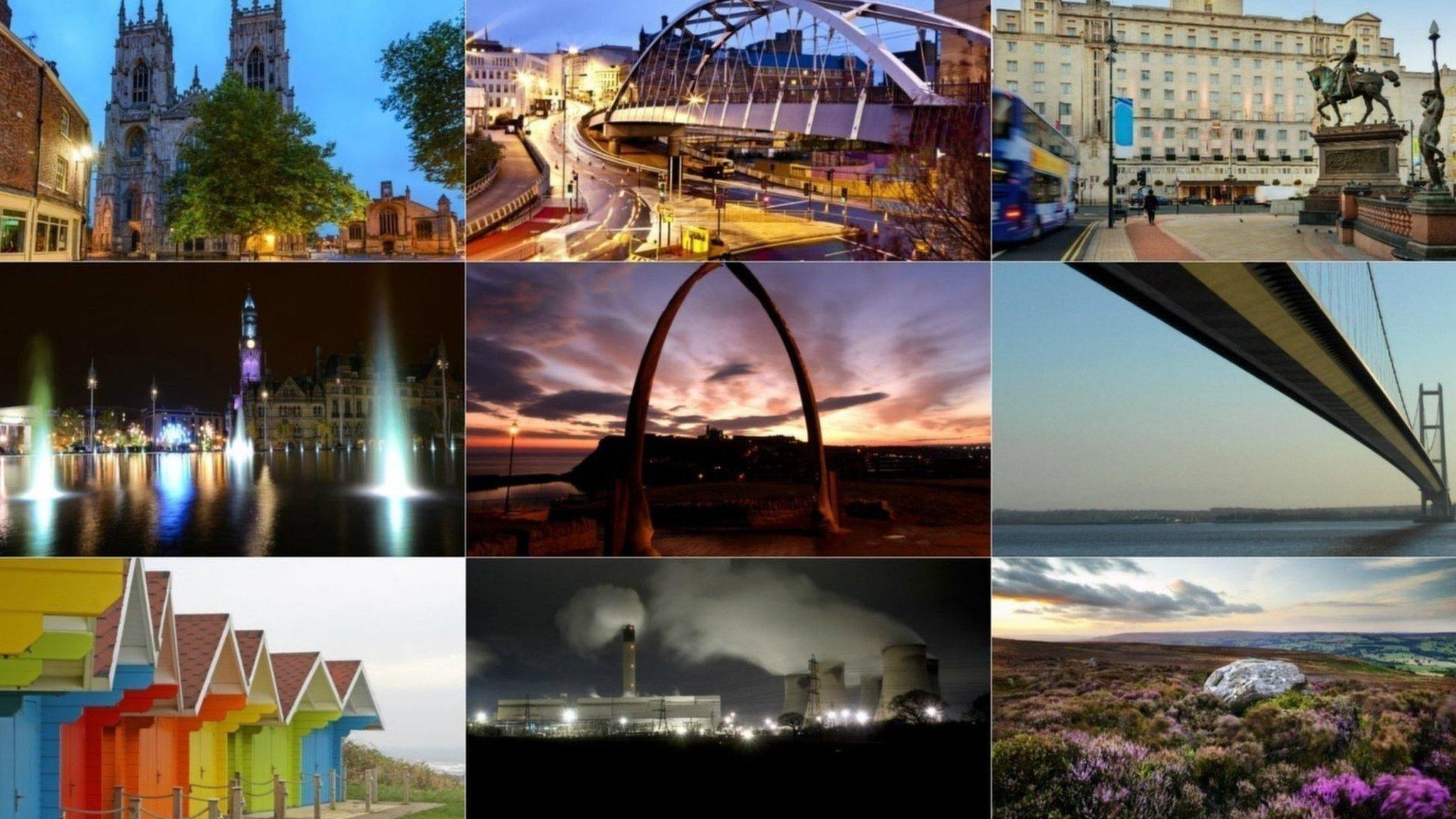
- Published1 November 2019

- Published8 November 2019
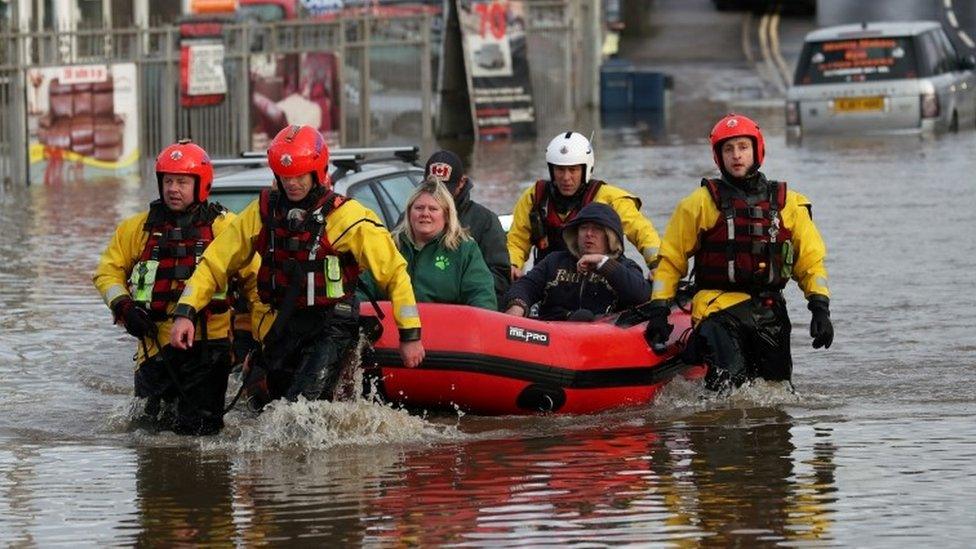
- Published8 November 2019
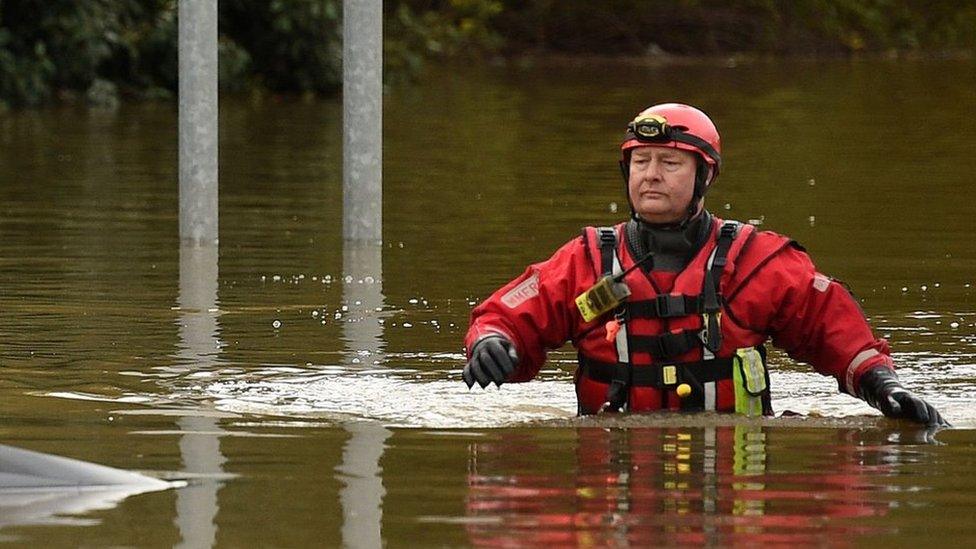
- Published22 February 2022
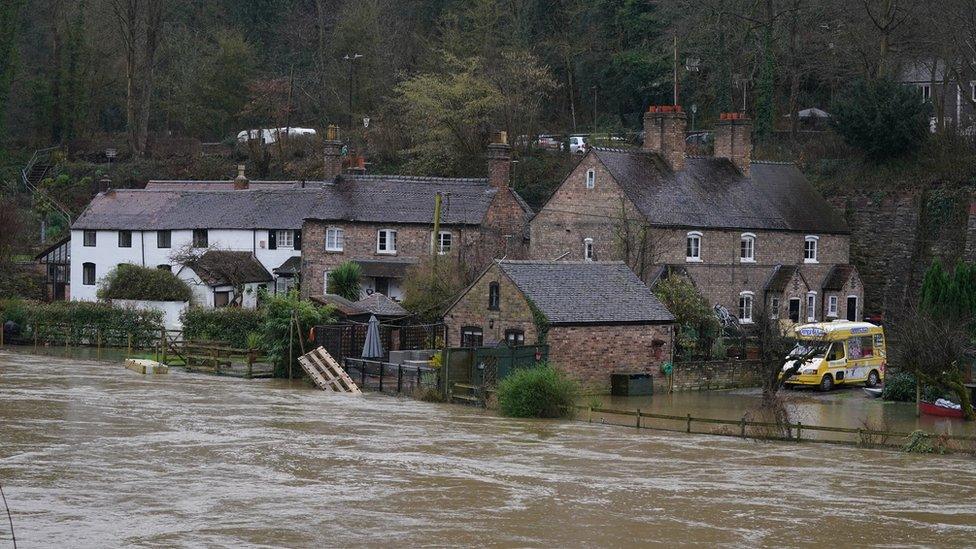
- Published8 November 2019
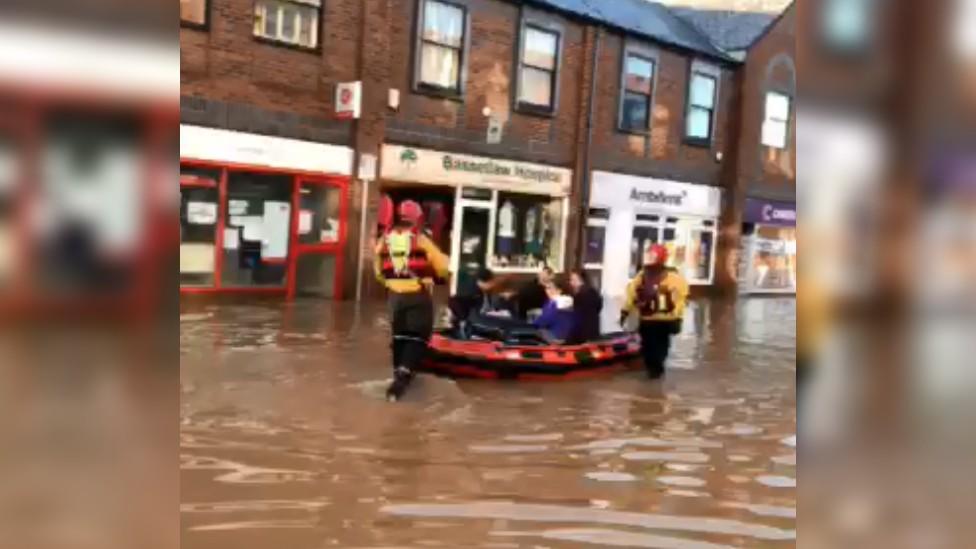
- Published8 November 2019
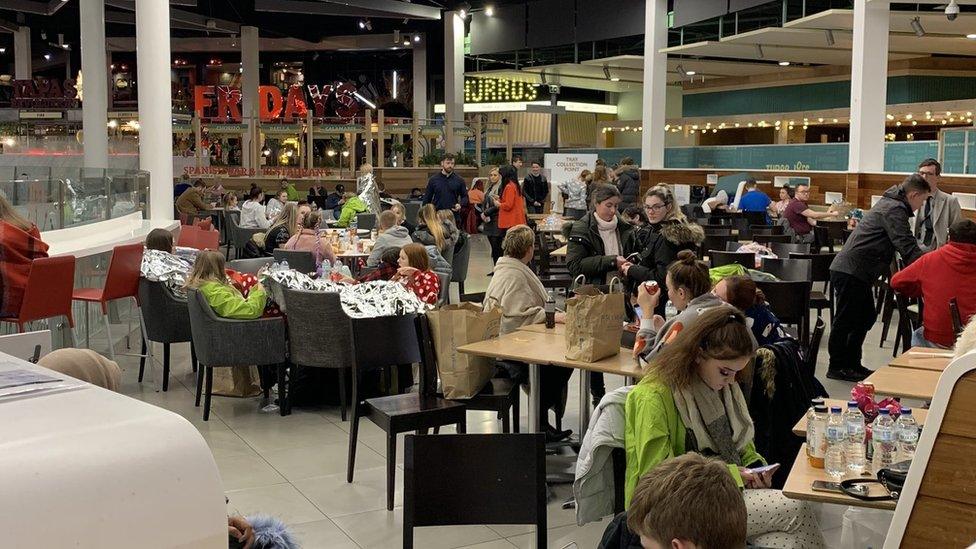
- Published8 November 2019
